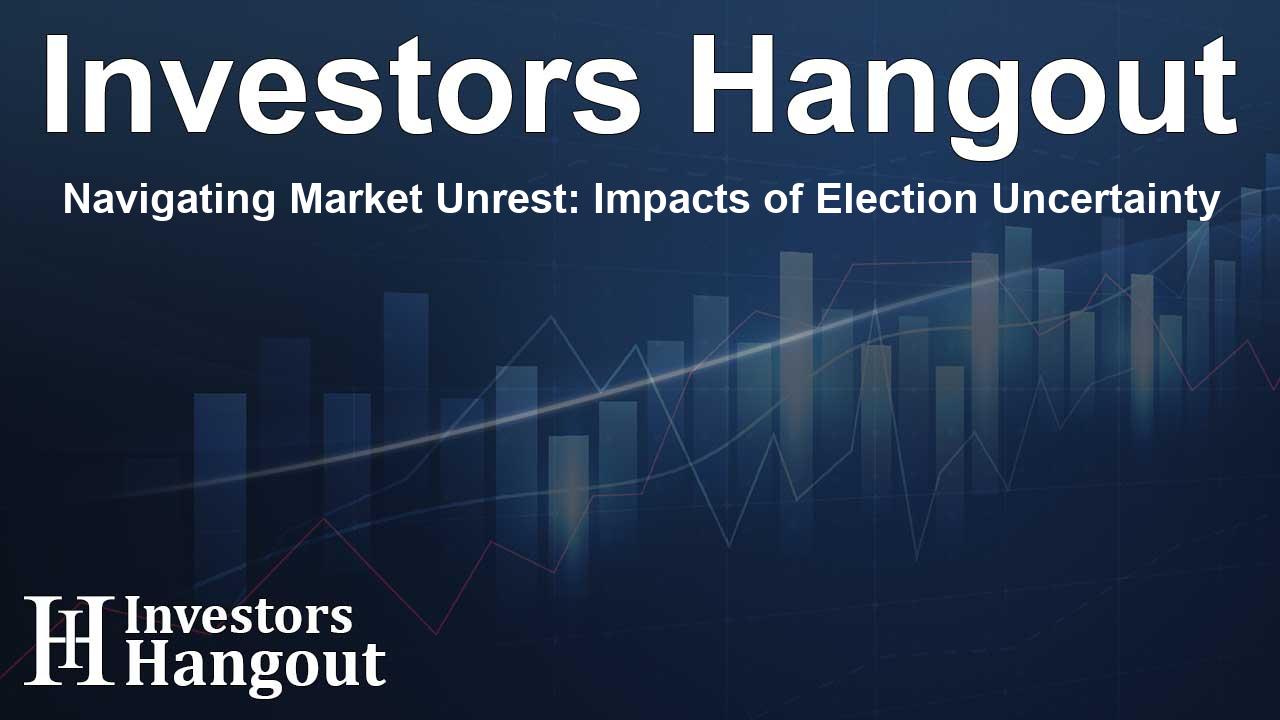Navigating Market Unrest: Impacts of Election Uncertainty

Reassessing Investment Strategies Amid Election Uncertainty
The current political landscape is creating unease among investors as the upcoming presidential election approaches. The tight race between the candidates has led many to consider the potential repercussions that a contested outcome could have on the stock market. With uncertainty in the air, it’s crucial to explore how this political scenario affects investing strategies.
Election Forecast and Market Reactions
Polls are indicating a neck-and-neck race, adding a layer of tension as both primary candidates remain competitive. According to recent assessments, the ongoing political dynamics could hinder market performance if the election outcome prompts disputes. Historical contexts also remind us of the volatility markets can experience when election results are questioned.
Understanding Historical Trends
Historical precedents indicate that contentious elections have resulted in notable market declines. For instance, during the contentious 2000 election, uncertainty surrounding the results led to a significant drop in the S&P 500. Investors were unsettled by the prolonged indecision, which had a direct impact on stock valuations. Observing past events allows current investors to glean insights on potential future movements in stock prices.
Current Market Sentiment
Despite the uncertainty surrounding the election results, the stock market has shown resilience so far this year. The S&P 500 has enjoyed substantial growth, but the looming election could potentially derail this momentum if the outcome leads to unrest. Investors are advised to stay vigilant and prepared for fluctuating markets.
The Role of Volatility Index and Risk Management
To gauge the potential market turbulence, analysts often turn to the Cboe Volatility Index (VIX). Recently, this index has experienced an uptick, reflecting heightened market jitters as election day nears. With many investors concerned about potential tail risks, the rising index serves as a reminder for individuals to adjust their strategies accordingly.
Active Risk Mitigation Strategies
Financial experts suggest that employing put contracts can be a viable option for hedging against possible downturns. By securing protection against declines, investors can buffer their portfolios against the unpredictable nature of the upcoming election. Furthermore, turning to traditionally stable assets such as utilities and commodities like gold could provide additional resilience during turbulent times.
Market Outlook Post-Election
Once the uncertainty settles post-election, analysts predict a rebound opportunity for the stock market. Often, the immediate aftermath of elections, even contentious ones, can lead to a market rally as investors gain clarity. The pattern suggests that while the lead-up to elections may sow uncertainty, the resolution aids in market recovery.
Looking Ahead
It’s essential for investors to keep an eye on legislative developments and the market’s response in the editorial phase following the election. Staying informed and flexible in investment approaches can help navigate the inevitable fluctuations that may arise during this politically charged environment.
Frequently Asked Questions
How does a contested election impact the stock market?
A contested election can create significant uncertainty, leading to market volatility as investors react to the potential for extended periods of indecision regarding leadership.
What strategies can investors use to prepare for election-related risks?
Investors can hedge against potential market downturns by utilizing put contracts and reallocating into safer assets like utility stocks and gold.
Are there historical examples of market reactions to contested elections?
Yes, notable instances include the 2000 election, where the S&P 500 experienced a decline during the prolonged uncertainty surrounding the results.
What role does the Cboe Volatility Index play?
The Cboe Volatility Index reflects market expectations regarding stock price fluctuations, serving as a barometer for investor sentiment and potential risks.
Will markets recover after the election?
Typically, markets tend to rebound after elections as uncertainty clears; historical trends show that past post-election periods often result in a positive market trajectory.
About The Author
Contact Dylan Bailey privately here. Or send an email with ATTN: Dylan Bailey as the subject to contact@investorshangout.com.
About Investors Hangout
Investors Hangout is a leading online stock forum for financial discussion and learning, offering a wide range of free tools and resources. It draws in traders of all levels, who exchange market knowledge, investigate trading tactics, and keep an eye on industry developments in real time. Featuring financial articles, stock message boards, quotes, charts, company profiles, and live news updates. Through cooperative learning and a wealth of informational resources, it helps users from novices creating their first portfolios to experts honing their techniques. Join Investors Hangout today: https://investorshangout.com/
The content of this article is based on factual, publicly available information and does not represent legal, financial, or investment advice. Investors Hangout does not offer financial advice, and the author is not a licensed financial advisor. Consult a qualified advisor before making any financial or investment decisions based on this article. This article should not be considered advice to purchase, sell, or hold any securities or other investments. If any of the material provided here is inaccurate, please contact us for corrections.
